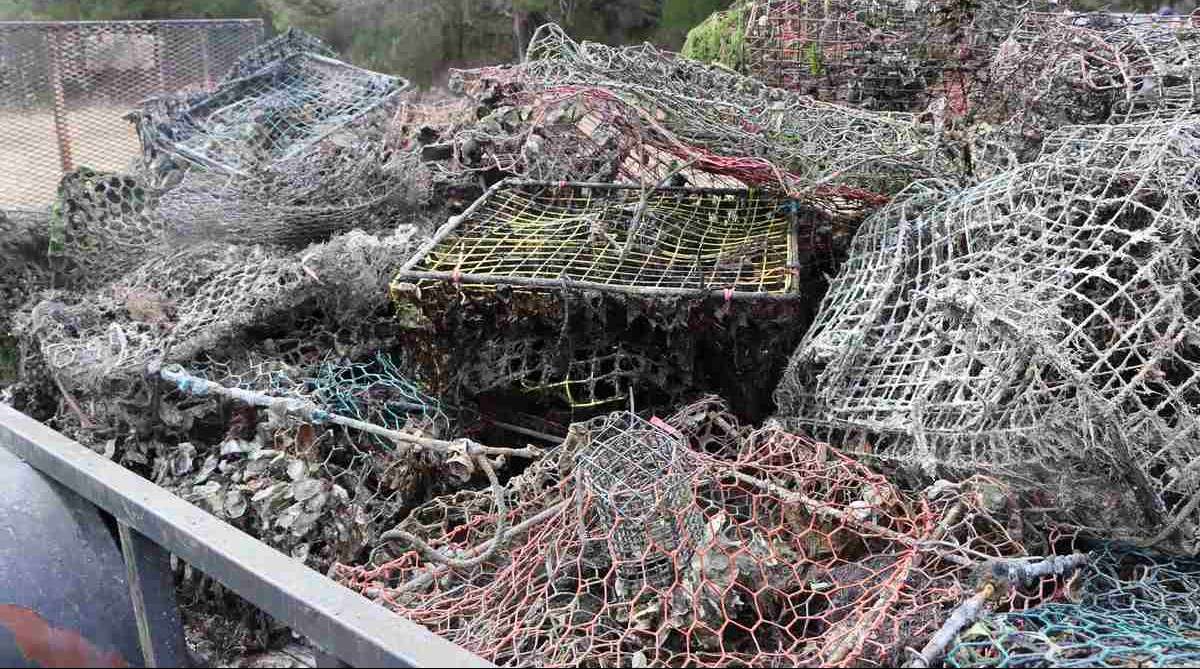Bee Therapy Retreat Where Vibrations From Bees and Scent of Honey Believed to Be Healing
The UK's first 'bee therapy' retreat has been launched in Scotland at a hotel that installed an apipod hut to provide a relaxing buzz.

Fishermen in Mississippi are getting paid to collect derelict crab traps, saving wildlife from getting caught in them.
A bounty of $5 is offered for every abandoned trap collected, and in just three years the program, launched by Mississippi Commercial Fisheries United, a nonprofit fishermen's organization, has collected over 3,000 such traps.
Crab traps work pretty simply—the crustaceans crawl in, and then they can't crawl out.
This is perfect for fishermen looking to supply the Gulf Coast with delicious seafood, but what happens when the traps are abandoned or become lost? Their lethal trapping power remains and carries on indiscriminately, a phenomenon known as ghost fishing.
Participating shrimpers and crabbers register for the program, then they catalog and tag every trap they collect on their way toward turning them in at a redemption site.
Alyssa Rodolfich, a graduate student at Mississippi State University, told Hakkai Magazine that it was really gratifying to see the number of derelict traps being turned in, having at first never realized the problem.
"I didn't realize how big of a problem it was until I was on the cleaning-up end of it, after a few months of removing, like, 200 crab traps at a time," she says. "It was heavy and gross, and the amount of by-catch in the traps was a lot."
MSU was also involved with the program alongside Mississippi Commercial Fisheries United, the Mississippi-Alabama Sea Grant Consortium, and the National Oceanic and Atmospheric Administration.
Together, scientists documenting the project published a paper on its successes, on which Rodolfich was the lead author.
The program has so far cost around $34,000 per year, which is nothing compared to the annual loss of gross revenue attributable to ghost fishing, which is estimated at $15 million from over 5,000 lost crab traps every year.
With such rapid, demonstrable success, the project just received a grant from NOAA to pay for the collection of other debris from the Gulf, which Hakkai explains is already taking off, with fishermen bringing in old tires, shopping carts, washing machines, and toilets.
SHARE These Awesome Fishermen Helping To Clean The Gulf…
Be the first to comment